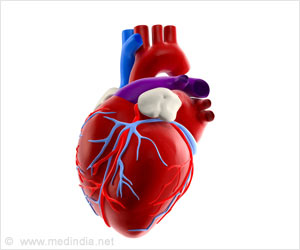“This is one of the largest studies to date to specifically capture instances of new heart failure diagnosis among patients hospitalized with COVID-19. While rare, the finding of new heart failure was more common among patients with preexisting cardiovascular risk factors or disease.
We should know how SARS-CoV-2 may directly affect the cardiovascular system and precipitate new heart failure- as to whether it is an indirect effect of critical illness or direct viral invasion,” says lead researcher Anu Lala, MD, Director of Heart Failure Research at the Icahn School of Medicine at Mount Sinai.
“Importantly, though symptoms of heart failure–namely shortness of breath–can mimic symptoms associated with COVID-19, being alerted to the findings of this study may prompt clinicians to monitor for signs of congestion more consistent with heart failure than COVID-19 alone.”
The study was done using electronic medical records of 6,439 admitted and confirmed COVID-19-positive adult patients between February 27 and June 26, 2020, at Mount Sinai Health System hospitals. The median age was 64.
Results show 37 patients with no previous history of heart failure who developed new cases of heart failure during their hospitalization for COVID-19. Of those, eight of them had no previous cardiovascular disease or risk factors, while 14 had a history of heart disease and 15 had no heart disease but at least one risk factor for it.
These eight patients also had more instances of cardiogenic shock. The patients who did have a history or risk factors for heart disease were, on average, 73 years old.
All new heart failure patients were in the hospital for seven days on average, and survival rates were similar among both groups.
“Understanding specific mechanisms as to how COVID-19 may precipitate new heart failure should be the focus of future work,” says first author Jesús Álvarez García, MD, PhD, a postdoctoral fellow in advanced heart failure and transplantation at Icahn Mount Sinai.
“Moving forward, we also need to monitor patients after hospitalization for COVID-19 for signs and symptoms of heart failure, based on studies demonstrating fibrosis in the myocardium on MRI following infection.
Pandemic and its aftermath will be with us for some time, so devoting energy to better understanding its impact on the cardiovascular system, particularly as it relates to the precipitation of heart failure, is crucial,” says Dr. Lala.
“It will also be important to monitor if patients develop heart failure later down the line, and more broadly how the cardiovascular system is impacted after recovery from COVID-19.”
The current study is based on previous Mount Sinai research, which found that patients with a history of heart failure and hospitalized with COVID-19 were more likely to face a longer hospitalization compared to those without a history of heart failure.
Source: Medindia



